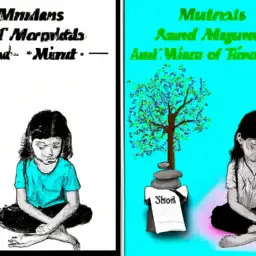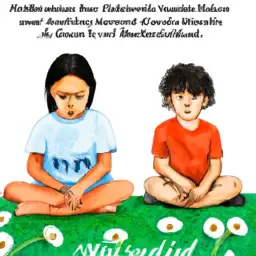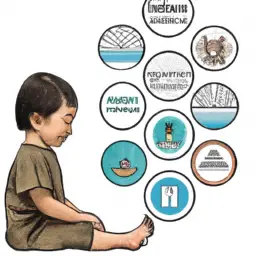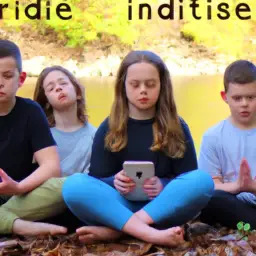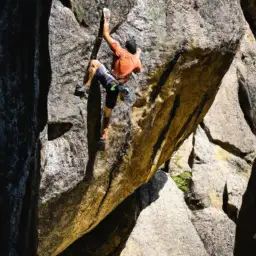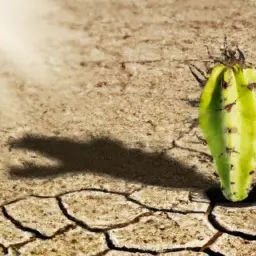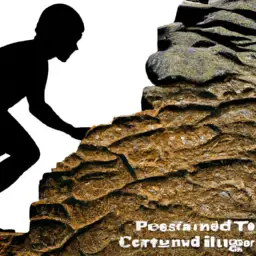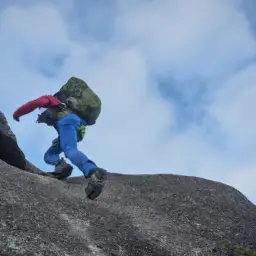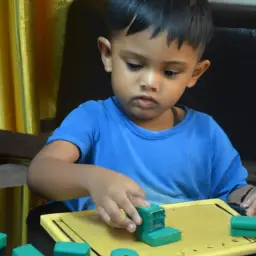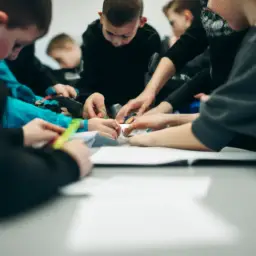Are you a parent or educator who wants to help children develop grit? Grit is the ability to persevere through challenges and setbacks, and it is a crucial characteristic for success in life. But how do you teach children to be gritty?
One popular method is mindfulness, which involves being present in the moment and cultivating awareness of one’s thoughts and emotions. However, traditional teaching methods also have their proponents.
In this article, we will explore the pros and cons of mindfulness and traditional teaching and compare their effectiveness in developing children’s grit. Many educators believe that mindfulness is a valuable tool for helping children develop grit. By teaching children to be present and non-judgmental, mindfulness can help them manage their emotions and stay focused on their goals.
However, others argue that traditional teaching methods, such as direct instruction and practice, are more effective in building grit. In this article, we will examine the evidence for both approaches and offer practical strategies for parents and educators who want to help children develop grit.
So whether you are a mindfulness enthusiast or a traditionalist, read on to learn how you can help children become more resilient and persistent in the face of challenges.
Key Takeaways
- Mindfulness practices can be effective in helping children develop grit by teaching them to manage their emotions and stay focused on their goals.
- Traditional teaching methods provide a structured learning environment, but may not cater to individual learning styles and preferences.
- Fostering resilience is a critical skill for building grit, and can be done through setting achievable goals, encouraging risk-taking, and providing positive feedback.
- Mindfulness can be introduced into the classroom through breathing exercises and guided meditations, and can benefit both teachers and students.
Understanding the Importance of Grit in Children
You may not realize it, but developing grit in children is crucial for their future success and happiness. Grit is the ability to persevere in the face of challenges and setbacks, and it is a key factor in achieving long-term goals. Children who have grit are more likely to succeed academically, socially, and professionally, as they are better equipped to handle difficult situations and bounce back from failure.
As a parent or educator, it’s important to understand the importance of grit and to take steps to help children develop this trait. One of the most effective ways to build grit in children is by teaching them resilience. Resilience is the ability to adapt to adversity and overcome challenges, and it is a critical skill for building grit.
There are many different grit building techniques that can help children develop resilience, including setting achievable goals, encouraging risk-taking, and providing positive feedback. By teaching children to be resilient, you can help them develop the confidence and perseverance they need to succeed in all areas of life.
Mindfulness: Pros and Cons
When it comes to developing grit, mindfulness practices can be effective in helping children develop self-awareness and emotional regulation. By teaching children to be present in the moment and observe their thoughts and feelings without judgment, mindfulness can help them better understand themselves and their reactions to challenging situations.
However, it’s important to acknowledge that mindfulness practices may not be a one-size-fits-all solution and may have limitations in fostering grit in some children.
Developing Self-Awareness and Emotional Regulation
As you guide your child in developing self-awareness and emotional regulation, you’re giving them a valuable tool for building grit.
As children learn to identify and manage their emotions through mindfulness techniques such as mindful breathing and body scan exercises, they gain a greater sense of control and stability in their daily lives. This leads to a more positive outlook and a greater ability to handle challenges and setbacks.
Here are five benefits of developing self-awareness and emotional regulation through mindfulness practices such as practicing gratitude and positive self-talk:
- Improved focus and attention span
- Increased empathy and compassion towards others
- Better stress management skills
- Enhanced self-esteem and confidence
- Improved decision-making and problem-solving abilities
By incorporating mindfulness practices into your child’s daily routine, you’re giving them a powerful tool for developing grit and resilience that’ll serve them well throughout their lives.
Potential Limitations in Fostering Grit
It’s important to acknowledge that fostering grit in children can have its limitations. While mindfulness and traditional teaching methods can both be effective in promoting self-awareness and emotional regulation, they may not be enough to instill grit in every child. There are potential drawbacks and challenges to consider when trying to develop grit in children, such as the potential for burnout, the need for alternatives to traditional teaching approaches, and criticisms of the concept of grit itself.
One way to address these limitations is to explore alternative methods of fostering grit in children. For example, incorporating physical activity and sports into a child’s routine can help them develop the perseverance and resilience necessary for real-world success. Additionally, parental involvement and cultural factors may play a significant role in the development of grit in children, and future research should take these factors into account. By considering these implications and solutions, we can work to develop effective and sustainable methods for fostering grit in children.
Traditional Teaching: Pros and Cons
Although traditional teaching methods have some advantages, they also have certain drawbacks that need to be addressed.
One of the main concerns is the teacher-student dynamics, where the teacher plays the authoritative role, and the students are expected to follow their instructions. This approach may not work well for all students, especially those who prefer a more collaborative learning environment.
In addition, traditional teaching methods tend to focus on a one-size-fits-all approach, which may not cater to individual learning styles and preferences.
On the other hand, traditional teaching methods have their benefits. They provide a structured learning environment that is organized and predictable. This can be helpful for students who thrive on routine and consistency.
Additionally, traditional teaching methods often follow a curriculum that is well-established and proven to be effective. This can give students a solid foundation of knowledge and skills that they can build upon later in life.
Overall, while traditional teaching methods have limitations, they can still be effective for certain students and subjects.
Grit-Building Strategies for Children
Ready to build your child’s grit? Let’s dive into some strategies that can help them develop resilience and perseverance!
Games, exercises, and role play are great ways to introduce children to the concept of grit-building. For example, you can create a game that challenges your child to keep trying even when they fail, or you can role play scenarios where they have to practice perseverance and problem-solving skills.
Storytelling and group activities can also be effective in developing grit. By sharing stories of successful people who have overcome obstacles and persevered, you can inspire your child to adopt a growth mindset and believe in their ability to overcome challenges.
Additionally, group activities such as team building exercises can teach children the value of collaboration and how to support one another in achieving goals.
Incorporating mindfulness techniques, journaling, visualization, reflection, goal setting, positive self-talk, and perseverance practice can also help build grit in children. By encouraging them to reflect on their experiences and set achievable goals, you can help them develop a sense of purpose and determination.
Case Studies
Now, let’s talk about some real-life examples of successful grit-building programs.
In this subtopic, you’ll explore case studies that showcase the effectiveness of both mindfulness and traditional teaching methods in developing children’s grit.
Through these examples, you’ll gain insights into how these strategies can be applied in different contexts and settings to foster resilience, perseverance, and success.
Examples of Successful Grit-Building Programs
Many schools have implemented programs to teach grit and foster resilience in children, such as ‘The Leader in Me’ and ‘Positive Action’. These programs have shown success in developing children’s character and preparing them for challenges in life. Here are four examples of successful grit-building programs:
-
‘The Leader in Me’ program is based on the book ‘The 7 Habits of Highly Effective People’ by Stephen Covey. This program teaches children leadership skills and character development through a school-wide culture of empowerment and responsibility.
-
‘Positive Action’ is a program that promotes positive behavior and emphasizes the importance of making good choices. It uses a holistic approach to address the physical, social, emotional, and academic needs of children.
-
‘The Resilience Project’ is a program that focuses on teaching children resilience by providing tools and strategies to cope with stress and adversity. This program emphasizes the importance of community involvement and parental support in building resilience.
-
‘MindUP’ is a program that teaches children mindfulness and social-emotional learning. It uses practices such as breathing exercises, gratitude, and kindness to promote positive behavior and emotional regulation.
These programs have shown that teaching grit and resilience is not only possible but also crucial for children’s success in life. By incorporating community involvement and parental support, schools can create a culture of resilience that prepares children for the challenges they will inevitably face.
Real-Life Applications of Mindfulness and Traditional Teaching
You might be surprised to learn that incorporating mindfulness practices into traditional teaching methods can have real-life benefits for both you and your students. Mindfulness in schools is gaining popularity as a way to help students develop grit, self-awareness, and emotional regulation. And as a teacher, you can also benefit from incorporating mindfulness practices into your daily routine.
One way to introduce mindfulness into your classroom is to start each day with a short mindfulness practice. This could be a simple breathing exercise or a guided meditation. You can also incorporate mindfulness into your lessons by encouraging students to pay attention to their thoughts and emotions as they learn new concepts. Additionally, you can model mindfulness by being present and attentive during class discussions and activities. Mindful parenting is another way to reinforce the importance of mindfulness in your students’ lives. By modeling mindfulness and teaching your students how to be present and aware of their thoughts and emotions, you can help them develop the grit they need to succeed in school and in life.
| Mindfulness in Schools | Mindful Parenting | ||
|---|---|---|---|
| Short mindfulness practice at the beginning of each day | Modeling mindfulness in everyday life | ||
| Incorporating mindfulness into lessons and activities | Teaching students to be present and aware of their thoughts and emotions | ||
| Modeling mindfulness during class discussions and activities | Reinforcing the importance of mindfulness in students’ lives | Encouraging students to practice mindfulness outside of the classroom to promote overall well-being and reduce stress. |
Frequently Asked Questions
What is grit?
Grit is the ability to persevere through challenging situations and setbacks. Grit building techniques are important for children to learn because they help develop resilience, determination, and a growth mindset.
This can include teaching children how to set goals, practice self-discipline, and develop a positive attitude towards failure. By instilling these values in children, they’re more likely to become successful and resilient adults who can handle difficult situations with ease.
How does mindfulness affect children’s academic performance?
If you want to improve your child’s academic performance, you might want to consider mindfulness techniques. By focusing on the present moment and developing a mind-body connection, mindfulness helps children reduce stress, improve attention, and regulate emotions.
This can lead to better academic outcomes, including improved memory, cognitive flexibility, and executive functioning. Mindfulness techniques can also help children develop a growth mindset, which is essential for academic success.
By teaching children that their abilities are not fixed, but can be developed through hard work and perseverance, mindfulness can help them become more resilient and persistent in the face of challenges.
What are the potential drawbacks of traditional teaching methods?
When it comes to traditional teaching methods, there are potential drawbacks that can limit a child’s engagement and creativity.
For instance, lectures and rote memorization can be boring and fail to capture a student’s attention. Additionally, traditional teaching approaches often favor conformity over individuality, which can stifle a child’s creativity and discourage them from exploring their own unique interests and passions.
Overall, these limitations can lead to a lack of engagement and a disinterest in learning, hindering a child’s academic performance and overall development.
Are there any specific grit-building strategies that have been proven to be most effective?
To build grit in children, there are various activities and techniques that have been proven effective. Grit building activities include setting achievable goals, encouraging perseverance, and providing opportunities for children to learn from their mistakes.
Mindfulness techniques can also be helpful in building grit by promoting self-awareness, emotional regulation, and a growth mindset. These techniques involve activities such as deep breathing, meditation, and visualization exercises.
By incorporating these activities and techniques into a child’s daily routine, they can develop the resilience and perseverance necessary to succeed in various aspects of their lives.
Can mindfulness and traditional teaching be effectively combined to develop children’s grit?
When it comes to developing children’s grit, both mindfulness and traditional teaching methods have their benefits.
Mindfulness practices can help children learn to regulate their emotions and increase their focus, while traditional teaching methods can provide structure and discipline.
However, when combining these strategies, there are practical considerations that must be taken into account. Incorporating mindfulness practices into a traditional classroom may require additional training for teachers and adjustments to the curriculum.
Overall, finding the right balance between mindfulness and traditional teaching methods can be a powerful tool in developing children’s grit.
Conclusion
Congratulations! You’ve made it to the end of the article. By now, you should have a better understanding of the importance of grit in children and the pros and cons of using mindfulness and traditional teaching methods to develop it.
While mindfulness has been shown to have a positive impact on children’s emotional regulation and well-being, traditional teaching methods such as setting clear goals and providing feedback can also be effective in building resilience.
So, which approach is more effective in developing children’s grit? The truth is, there’s no one-size-fits-all answer. Every child is different and may respond differently to various methods.
However, by combining different strategies such as mindfulness, traditional teaching methods, and setting achievable goals, parents and educators can help children develop grit and resilience that will serve them well throughout their lives.
So, keep experimenting and find what works best for your child!





